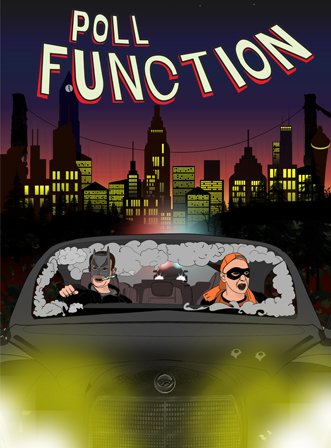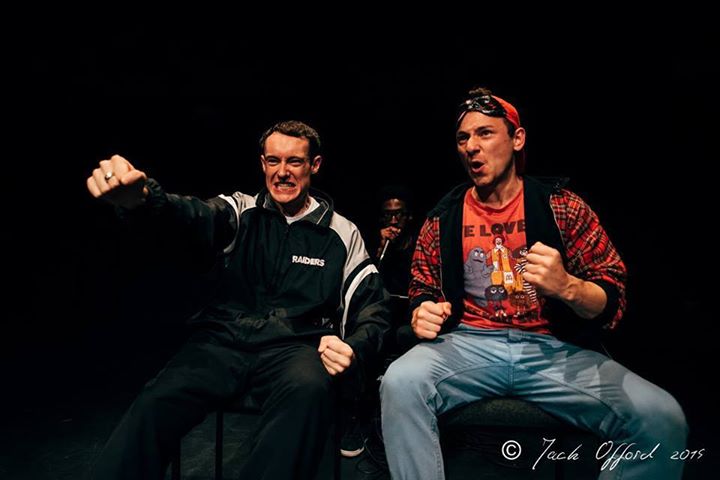
With Permission: The Wardrobe Theatre
Obscured in half-faced masks two male figures face the audience, seated on a simple pair of chairs. This is the extent of the stage set. Their four eyes shine out from beneath the masks, with admirable steadiness, already centre-stage before the performance has even begun. From tiered seating, all eyes are on them as the house lights drop and a spotlight illuminates them further.
We immediately learn that the set – the two chairs – is a car, from within which the majority of the narrative is navigated. The pair are friends, youths of post-school age, and native Bristolians. The story spans years through flashbacks, recollections (“Hey, do you remember when…?”), and the eventual removal of their masks. Presumably this marks a pivotal moment, but as with many moments in this powerful performance, it is not clearly evident what this is.
I first saw this production performed at the Alma Tavern Theatre in 2016. Although the Wardrobe Theatre, where Poll Function has just finished its current run, is far from grand in capacity, the intimacy of the space at the Alma Tavern better complimented the personal nature of the play.
Rather than a complete story, the narrative works as a snapshot into the private conversations between friends, from within this car. It is interesting to consider the way that, in both this performance as well as in real life, cars navigate public and private spaces. The minimal stage setting plays upon this idea. The walls and doors are removed (well, they never really existed), and the entire audience is invited into the vehicle. We don’t see it as expanding to encompass us, because the actors movements remain confined to the natural space of their implied car.

Copyright: Jack Offord (2015). With Permission: The Wardrobe Theatre
We join the duo on a smoke-filled joy ride as they race away from police sirens, collide with an unfortunate creature, and contemplate vandalising their old schoolground. Symbolised by the stop-start motion of their swerving car, the real journey we experience is their struggle into adulthood, for which they are grossly ill-equipped. Both actors do a fantastic job, deftly encouraging emotion out of the audience, but Joe Pasco stole the show. With a number of heartbreaking monologues, perhaps Pasco was afforded more opportunity to shine, but either way, he unfalteringly did. Although the specificities of the plot were at times hard to follow, the mood, which swung with full adolescent force, was always palpable.
Had I not seen the 2016 iteration of Poll Function, which benefited from the perfectly choreographed (and unbelievably realistic!) sound effects of actor/director Theo St. Claire, I would have enjoyed this performance to its fullest. Unfortunately, the two remaining characters voiced the creaks and alarms of the world within and without the car themselves, which, whilst amusing, caused momentary interruptions to the otherwise palpable immersion of the audience.
Poll Function is fast paced and packed with laughs, with a zigzagging story that will punch you in the heart… even if you’re uncertain of exactly what’s happening. It is no surprise that Greg Shewring, creator of the play, won the Pleasance Indie Award for Best Theatre Newcomer in 2017. Together, he and the actors comprise a collective called Hail to the People. If you don’t get a chance to see Poll Function, I urge you to keep an eye on their other projects – they’re a team set for greatness!
Filed under: Comedy, Theatre & Dance
Tagged with: bristol, Car, Greg Shewring, Hail to the People, Joe Pasco, performance, play, Poll Function, The Alma Tavern, the Wardrobe Theatre, Theo St Claire



Comments